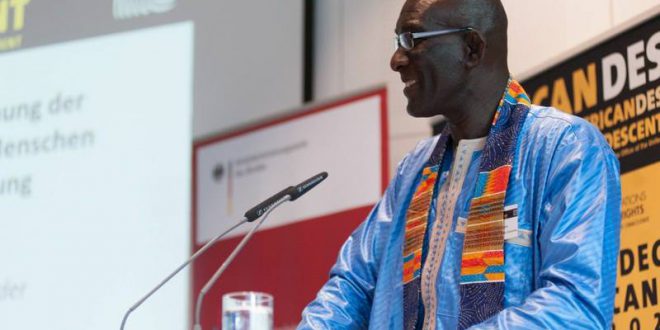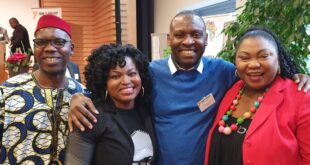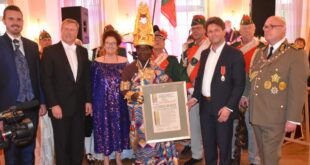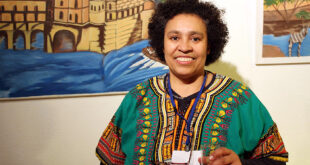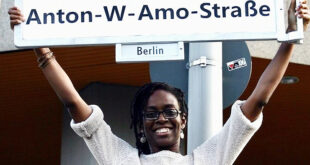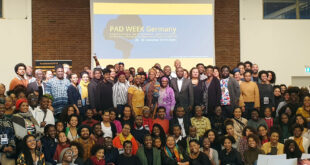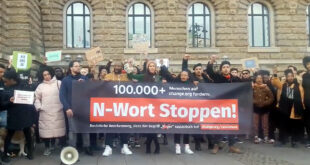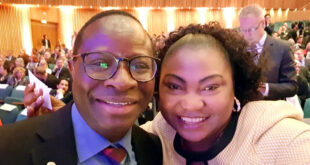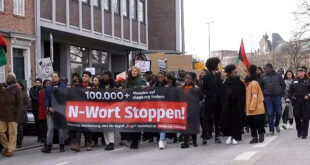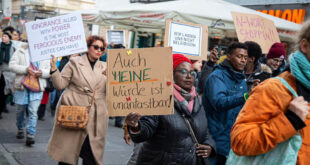The International Decade for People of African Descent, 2015–2024, was proclaimed by the UN General Assembly and adopted on 23 December 2013. The theme of the Decade is “People of African descent: recognition, justice and development”. The Decade highlights the human rights situation of the African diaspora worldwide and aims to fight racial discrimination and create visibility for the contribution of people of African descent in the societies they live in.
The seeds of the Decade were planted in 2001 at the UN World Conference against Racism, Racial Discrimination, Xenophobia and Related Intolerance in South Africa, which led to the adoption of the Durban Declaration and Programme of Action. In addition to declaring that the people of Africa had been victimised by slavery and continued to suffer as a result, the Declaration called for states to adopt specific steps to help to combat racism and xenophobia and to protect its victims.
The Decade was officially launched in Germany recently in Berlin in the presence of a representative of the UN High Commissioner for Human Rights. The theme of the event, jointly organised by the Central Council of African Communities in Germany, the Federal Anti-Discrimination Agency and Engagement Global, was “Human Rights in Practice: Experiences of People of African Descent in Germany”.
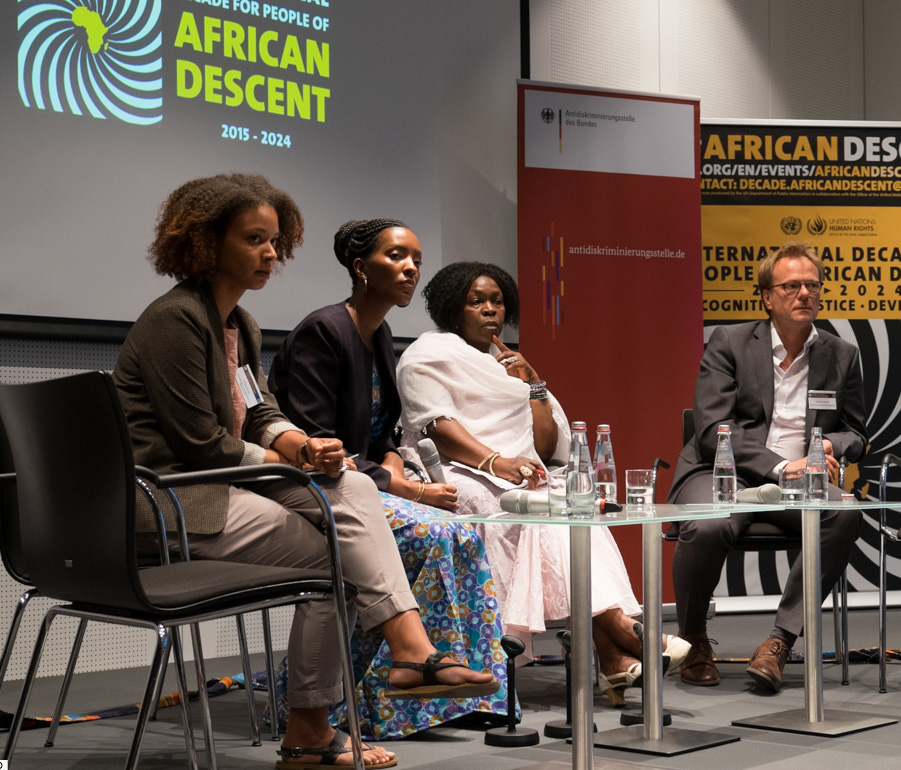
Moctar Kamara, president of the Central Council of African Communities in Germany, in his speech, said: “With recognition, we the African descendants mean the restoration of the dignity of people of African origin which has been damaged by racist colonial ideologies and oppression.”
Christine Lüders, Director of the Federal Anti-Discrimination Agency, underlined the meaning of the Decade: “The International Decade for People of African Descent reminds us of the massive discrimination, marginalisation and racism which many still experience. We see the Decade, therefore, as a big opportunity to promote enlightenment and knowledge and to strengthen and support people who suffer discrimination.”
Anita Reddy of Engagement Global, a funding department of the
Federal Ministry for Economic Co-operation and Development, stressed that to achieve the goals of the Decade, prejudices against people of African origin must be eliminated. These, she said, resulted from undifferentiated and racist images and therefore education has the potential to reduce these prejudices.
In his keynote address, Dr Karamba Diaby, SPD member of the Bundestag, called for political action to create equal opportunity for people of African descent. “The UN Decade reminds us politicians and the population as a whole what has been ignored for far too long: people of African descent are disproportionately affected by racial discrimination. For the social cohesion of our society, it is important to establish justice and to develop concepts that enable equal opportunities for all,” he added.
Dr Hendrik Cremer (German Institute for Human Rights), Virginia Wangare-Greiner (Maisha e.V.) and Lioba Hirsch (Initiative of Black People in Germany e.V.) spoke on the situation of Black people in Germany.
Dr Cremer called on the police to abolish discriminatory identity control.
“Black people in Germany are particularly affected by discriminatory control by the police. The High Administrative Court of Rhineland-Palatinate has determined in a recent verdict that identity check violates the constitutional prohibition of racial discrimination (Article 3, Paragraph 3) if the skin colour of the affected was decisive in carrying out a security check,” Cremer said.
He added that the underlying legal basis for such discriminatory security check in the Federal Police Law has been criticised in several instances by European and international human rights bodies. “This rule should therefore be abolished.”
In collaboration with the Central Council of African Communities in Germany, the Initiative of Black People in Germany and other civil society groups, the Kaneza Initiative for Dialogue and Empowerment co-ordinates the activities for the implementation of the Decade in Germany.
Elizabeth Kaneza, director of the Kaneza Initiative for Dialogue and Empowerment, is the Decade’s Fellow for Germany and one of the three Fellows in Europe appointed by the UN.
Kwame Appiah
READ ALSO Black people in Germany tell United Nations their pains
 THE AFRICAN COURIER. Reporting Africa and its Diaspora! The African Courier is an international magazine published in Germany to report on Africa and the Diaspora African experience. The first issue of the bimonthly magazine appeared on the newsstands on 15 February 1998. The African Courier is a communication forum for European-African political, economic and cultural exchanges, and a voice for Africa in Europe.
THE AFRICAN COURIER. Reporting Africa and its Diaspora! The African Courier is an international magazine published in Germany to report on Africa and the Diaspora African experience. The first issue of the bimonthly magazine appeared on the newsstands on 15 February 1998. The African Courier is a communication forum for European-African political, economic and cultural exchanges, and a voice for Africa in Europe.

